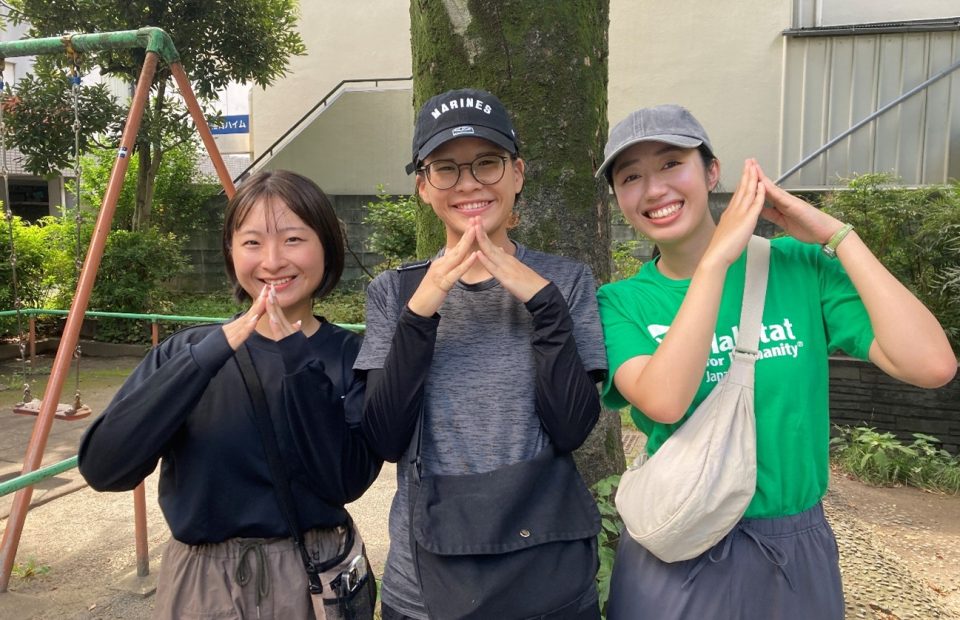Project HomeWorks (PHW) is Habitat Japan’s domestic initiative supporting those in need of help maintaining a safe and decent living environment, including the elderly and those with disabilities who find it difficult to keep tidy on their own. In September, a total of 22 volunteers joined 8 PHW cleaning and tidying sessions total.
One session was held at the home of Narikawa-san (alias) in their sixties. Narikawa-san first consulted with us in August via their local social services organization, at which time they were hospitalized. They had recovered to a degree which they could return home, but when a social worker visited Narikawa-san’s home leading up to their discharge, they found it was in an unlivable state of disarray.
Habitat Staff quickly conducted a preliminary inspection of the room, where we found the room was filled with a sea of plastic bottles over a meter deep in some places. Fearing for the safety and health of our volunteers, we first advised that a professional be called in to handle the cleaning. However, as a recipient of welfare, Narikawa-san could only receive public funding to afford half of the professional cleaners’ quoted fee.
After further discussion with their social worker, it was decided that professionals would first clean the room halfway with the budget Narikawa-san could provide, making it more manageable for volunteers to clean. Normally, Habitat Japan only conducts Project HomeWorks with the owner of the room in question present. This time, an exception was made with the consent of Narikawa-san on the condition that their social worker was present during the session so the cleaning could take place while they were in the hospital.
Entering the room, we found over 30 garbage bags piled up along the walls, which overflowed from the back of the truck and couldn’t be carried off by the professional cleaners. We started by tackling these bags, and volunteers talked amongst themselves as they carried trash to a nearby collection point until all of them were cleared out of the room. Next, volunteers cleaned trash from on top of and below the bed and cleaned out cabinets. Making sure to leave behind personal belongings that were in a usable state, the room was slowly transformed into a clean and tidy space. Makiki-san, a third-year university student volunteering with PHW for the first time, commented “I feel like I was able to help create a decent home for someone, no matter how small. I hope that more people will volunteer with Project HomeWorks.”
While we were able to secure a clear space this time, the home was still in a condition unfit for Narikawa-san to return to. Following the session, the social wroker “Now that the volunteer sessions has cleared out the trash, I’ll work to clean the room, clean the kitchen and bathroom, and bring in a nursing bed. One step at a time, I can work to create a livable environment.” With Habitat Japan’s role finished, it is up to Narikawa-san and their existing support network to maintain a decent environment.
Problems of indecent housing such as this case are all around us but are invisible from the outside. Like Narakawa-san, a person’s living environment can pass a point of no return beyond which handling it on one’s own becomes an impossible task. At such times, taking the place of relatives and acquaintances, social services and volunteers can serve as an invaluable source of support for our home partners. In partnership with volunteers and social services, Habitat Japan will continue working to support those in of cleaning and tidying support.

